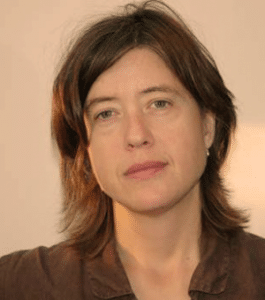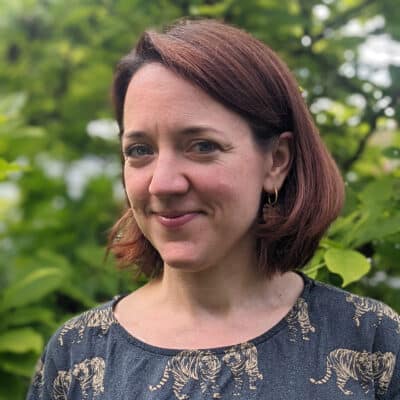The United Nations Conference of the Parties for Biodiversity (COP15) is launching today in Montreal Canada and will convene governments from nearly 200 countries to agree to a new set of goals to tackle the biodiversity crisis over the next decade. A range of academics and students from the University of Oxford are attending both in person and virtually so we caught up with them to see what they are hoping to see happen in this important event!

Amy Bogaard – Professor of Neolithic and Bronze Age Archaeology, School of Archaeology
Why are you attending the CBD COP this year?
“I am attending in order to learn. For me, this is an opportunity to gauge how the archaeological community can accelerate its contributions to the conversation around biodiversity, from a deep-time perspective. Also, I am (still) Canadian (despite living in the UK for many years), and part of my interest is to see how the CBD COP in Montreal focuses attention on indigenous communities in Canada and their land use practices.”
What are you hoping this CBD COP will achieve?
“A lot! I hope the conversations and negotiations will energise all kinds of communities, including academic ones, to think in new ways about the past, present and future of nature.”
What is making you feel optimistic about the future of nature?
“The public attention on these issues has never been higher – at least in my lifetime – and the diverse approaches of younger generations, including my fellow delegates from Oxford (!), is a cause for optimism.”
Seth Thomas – Research Assistant at the Nature-based Solutions Initiative
Why are you attending the CBD COP this year?
“I am attending the COP as part of the Oxford and Global Youth Biodiversity Network teams and working to advocate for global youth priorities and to learn more about the decision-making process.”
What are you hoping this CBD COP will achieve?
“I am hoping that this COP can create an ambitious post-2020 framework, but even more importantly I hope that they create stronger enforcement mechanisms to hold members accountable to achieving these aims.”

What is making you feel optimistic about the future of nature?
“I think that public awareness about the damaged state of nature has never been higher and that more people are choosing to do their part to protect biodiversity each day. Simultaneously, we are deepening our understanding of how to best restore nature and creating a chance for us to slow the global decline in biodiversity and possibly even reverse it.”

Emily Stott – Nature Positive Universities Coordinator
Why are you attending the CBD COP this year?
“We are launching Nature Positive Pledges made by our global network of universities towards a global goal of Nature Positive.”
What are you hoping this CBD COP will achieve?
“A global goal for nature, recognition of the value of nature and the importance of urgent nature restoration to build resilient ecosystems and help us weather the worst of climate change in the years to come.”
What is making you feel optimistic about the future of nature?
“Young people seizing the urgency of the situation and organising themselves to demand change.”
Jocelyn Perry – DPhil Student in Public Policy, Blavatnik School of Government
Why are you attending the CBD COP this year?
“Global efforts to reverse biodiversity loss and improve humans’ relationship with nature are critical to a healthy planet, and COP15 is a key milestone in this process. While the UN Climate Change COPs happen every year, the CBD’s COPs are an even more significant event as they only occur once per decade. As my research focuses on community engagement in climate adaptation planning, I am keen to attend COP15 to support more inclusive decision-making processes, including the elevation of local communities and Indigenous peoples in the negotiations. I also plan to advocate for measures that will strengthen contributions from cities and other subnational actors in the new global biodiversity framework. These will be highlighted during the Summit for Subnational Governments & Cities Taking Action for Biodiversity.”

What is making you feel optimistic about the future of nature?
“I believe there is increasing recognition of the need for human society to live in harmony with nature, returning to many of the concepts that we understood before the Industrial Revolution and that many Indigenous communities have continued to support throughout their histories. In my work on adapting to climate change and promoting biodiversity, I see many opportunities for policies that will support both nature-positive outcomes and those that will help us to mitigate and adapt to the effects of climate change. By understanding and implementing these policies, I see a way forward for human societies that will also support the well-being of the many other living creatures and natural environments that make the Earth their home as well.”
Ashwini Petchiappan – Graduate Student, Biodiversity, conservation and management
Why are you attending the CBD COP this year?
“I hope to see a global biodiversity framework being adopted to ensure the future of the planet’s wonderful wildlife.”
What are you hoping this CBD COP will achieve?
“There is huge potential to change the trajectory of biodiversity loss, and to steer the world into a future that isn’t human-centred.”
What is making you feel optimistic about the future of nature?
“I see hope in the coming together of the world’s society into the adoption of the post-2020 global biodiversity framework. This could be a game-changer in the movement to conserve biodiversity and ecosystems.”


